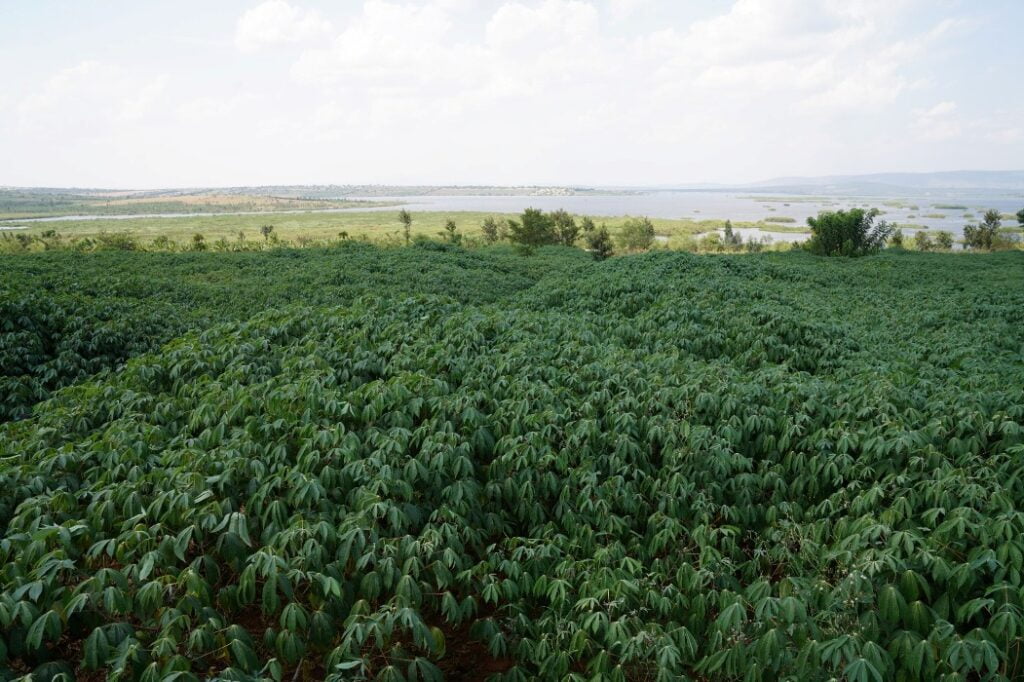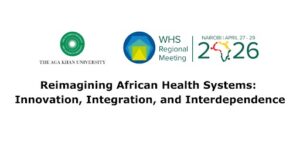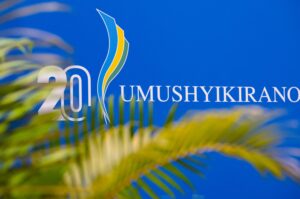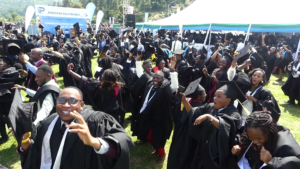By Xaverine Cyiza
The residents of Ndego sector, Byimana cell, Kabeza village in Kayonza district, particularly members of the “TerimbereMuhinziByimana” cooperative, have expressed their gratitude to the KIIWP project for its assistance in combating drought and malnutrition.
In an interview with Pascal Nyandwi, president of the 40-member cooperative, predominantly composed of women, he mentioned that they have achieved significant milestones with the help of KIIWP. This includes cultivating cassava in partnership with KIIWP, which provided agricultural advisors and taught them how to grow vegetables.
Nyandwi noted that Ndego used to experience severe drought, but since they started using irrigation, they have seen improvements as they could not rely on the rain for their harvest. The partnership with HingaWeze provided solar-powered irrigation for 20 hectares.
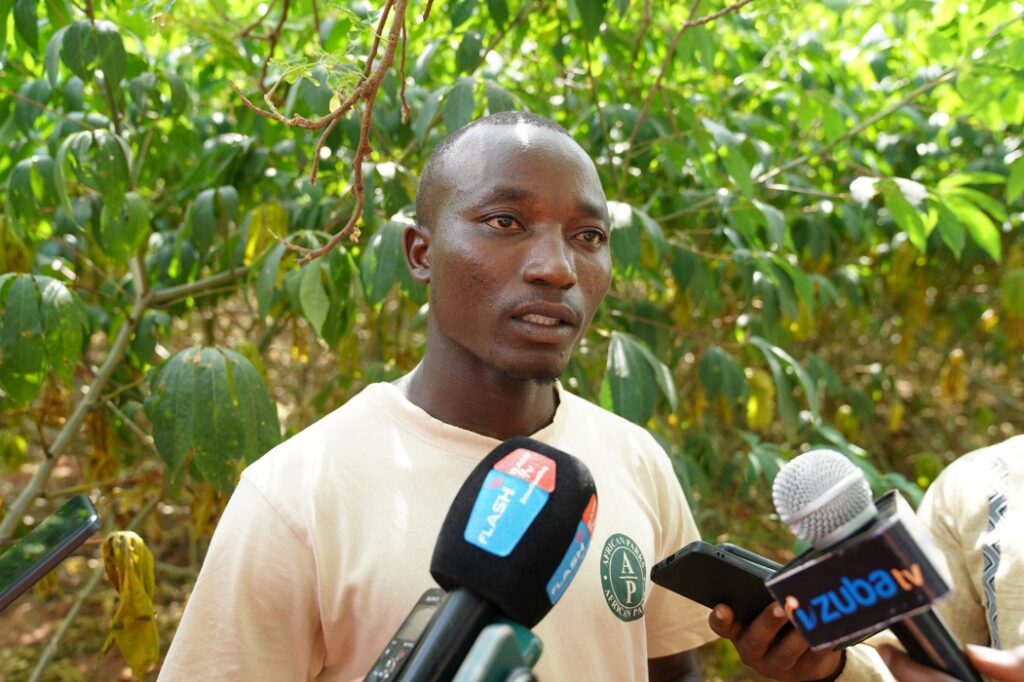
Pascal Nyandwi, president of the 40-member cooperative
“We used the land they gave us for learning purposes, and now our harvest has increased,” he said. “Previously, we harvested 500kg of maize per hectare, but now we produce 5 tons because we irrigate and have gained more knowledge in farming. We no longer rely solely on rain as fertilizer.”
He added that they now plant on time and use both organic and chemical fertilizers. Even when it doesn’t rain, they have their irrigation systems.
“KIIWP is a great project; we appreciate it because they advised us to venture into crop farming. We started farming with them on what is called a model farm, where they provided seeds and fertilizers, and we used our labor while working with agronomists from RAB who taught us professional farming.”
This support has enabled them to achieve food security and even sell surplus produce, allowing them to buy livestock. They have also signed contracts with major markets, and there are plans to supply cassava to the Kinazi Cassava Flour factory.
NyirarukundoGloriouse, another member of the cooperative, who also provides them with farming tools, stated, “Since we started working with KIIWP, many things have changed because we have improved compared to before.”
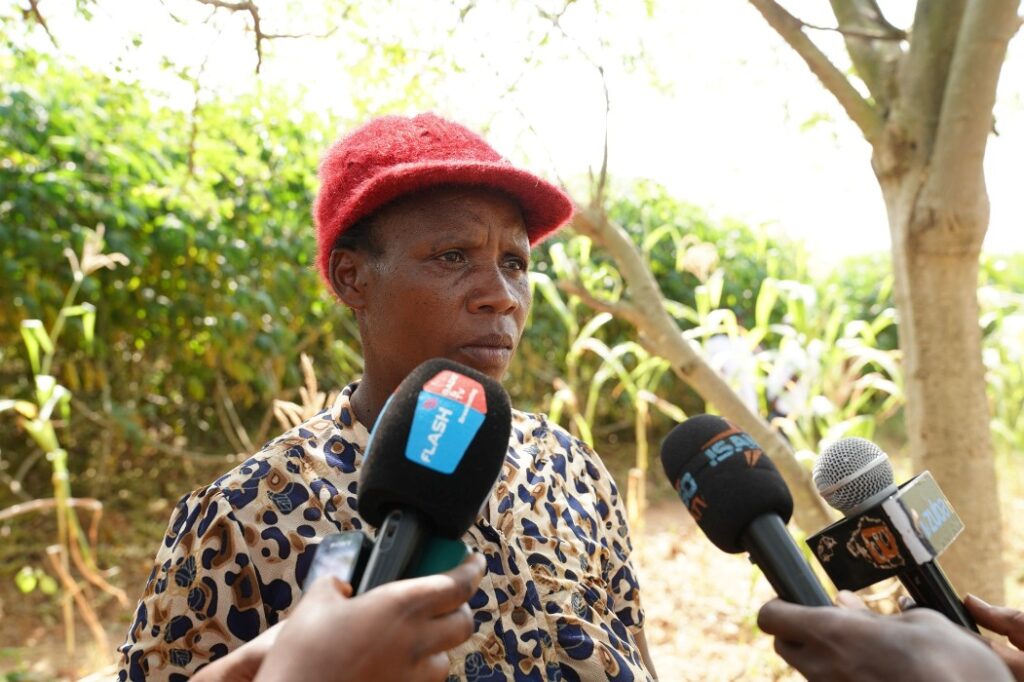
NyirarukundoGloriouse, another member of the cooperative
“Now, I have a nice house that I built from farming income. We have also overcome malnutrition because we no longer need to buy vegetables since KIIWP taught us how to grow them.”
“However, the challenge we still face is drought because, with adequate water, we could achieve even more.”
From 2016 to 2018, they endured severe drought until HingaWeze partners helped them access solar-powered water systems and formed the TerimbereMuhinziNdegoByimana cooperative. Although water is still insufficient, it is better than before.
“Our partnership with KIIWP is strong because they provided us with fertilizers, cassava seeds, and vegetables. We hope they will help us get water pumps as the initial support from HingaWeze is no longer available.”
SIBOMANA Jean Claude, an agricultural and farmer training officer at KIIWP, said, “We aim to establish farmer groups to help them improve their livelihoods. We start by teaching farmers through farmer field schools on modern farming techniques.”
“Those who have been trained are now practicing on their own farms. The cooperative you visited is currently engaged in cassava seed farming. We expect two things from this: first, they will provide high-quality cassava seeds to other farmers, and second, they will sell these seeds to other members. We also plan to connect them with the Kinazi Cassava Flour factory to process their cassava.”
“This cassava variety takes a year to mature, so it will be harvested in October. We ensure the seeds are of high quality to withstand different conditions.”
“We are also working on securing water for them by providing pipes, and KIIWP plans to develop 2000 hectares in this sector. Our goal is to teach them modern farming techniques so that when water is available, they are all ready to farm efficiently.” Sibomana said.
KIIWP2 is a project initiated by the Government of Rwanda in collaboration with the International Fund for Agricultural Development (IFAD) through the Ministry of Agriculture and Animal Resources (MINAGRI) and implemented by the Rwanda Agriculture and Animal Resources Development Board (RAB).
Theogene Uwitonze, the representative of the Kayonza Irrigation and Integration Project (KIIWP), explained that the project was developed to address the challenges faced by the area, primarily due to droughts caused by climate change. In 2016, the district experienced significant malnutrition and food shortages.
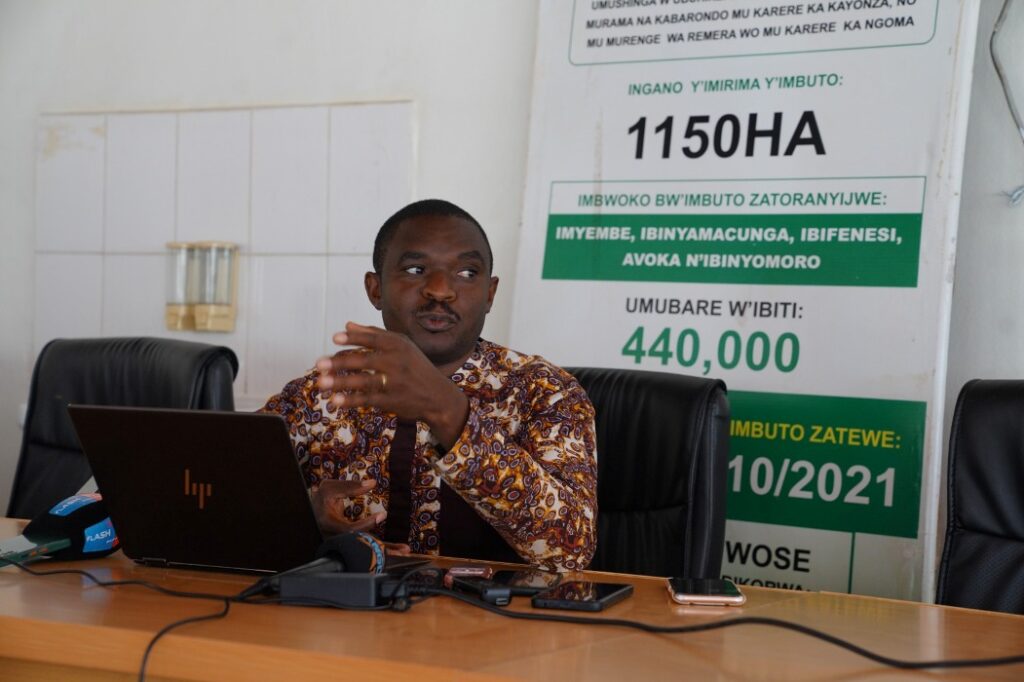
Theogene Uwitonze, the representative of the Kayonza Irrigation and Integration Project (KIIWP)
The project aims to tackle three main issues: drought resulting from dry land, very low agricultural yields, and economic problems related to production and markets.
KIIWP is a ten-year project. The first phase, which has already been completed, lasted four years. The second phase will span six years. The primary goal is to lift the residents of Kayonza District, identified as the most impoverished, out of poverty. The target is to reach at least 40,000 households through agriculture and livestock farming, as well as by connecting farmers to markets.
Other activities of the cooperative


